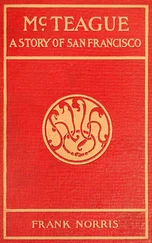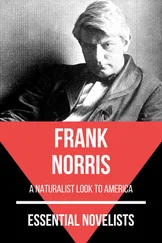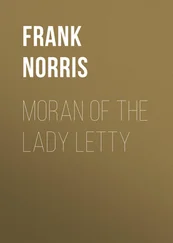Frank Norris - The Pit - A Story of Chicago
Здесь есть возможность читать онлайн «Frank Norris - The Pit - A Story of Chicago» — ознакомительный отрывок электронной книги совершенно бесплатно, а после прочтения отрывка купить полную версию. В некоторых случаях можно слушать аудио, скачать через торрент в формате fb2 и присутствует краткое содержание. Жанр: foreign_prose, literature_19, foreign_antique, на английском языке. Описание произведения, (предисловие) а так же отзывы посетителей доступны на портале библиотеки ЛибКат.
- Название:The Pit: A Story of Chicago
- Автор:
- Жанр:
- Год:неизвестен
- ISBN:нет данных
- Рейтинг книги:3 / 5. Голосов: 1
-
Избранное:Добавить в избранное
- Отзывы:
-
Ваша оценка:
- 60
- 1
- 2
- 3
- 4
- 5
The Pit: A Story of Chicago: краткое содержание, описание и аннотация
Предлагаем к чтению аннотацию, описание, краткое содержание или предисловие (зависит от того, что написал сам автор книги «The Pit: A Story of Chicago»). Если вы не нашли необходимую информацию о книге — напишите в комментариях, мы постараемся отыскать её.
The Pit: A Story of Chicago — читать онлайн ознакомительный отрывок
Ниже представлен текст книги, разбитый по страницам. Система сохранения места последней прочитанной страницы, позволяет с удобством читать онлайн бесплатно книгу «The Pit: A Story of Chicago», без необходимости каждый раз заново искать на чём Вы остановились. Поставьте закладку, и сможете в любой момент перейти на страницу, на которой закончили чтение.
Интервал:
Закладка:
As Laura considered the prospect she realised her blunder.
"Why, and oh, why," she murmured, "didn't we stay at the hotel till all this was straightened out?"
But in an adjoining room she heard Aunt Wess' stirring. She turned to Page, who upon the pillows beside her still slept, her stocking around her neck as a guarantee against draughts.
"Page, Page! Wake up, girlie. It's late, and there's worlds to do."
Page woke blinking.
"Oh, it's freezing cold, Laura. Let's light the oil stove and stay in bed till the room gets warm. Oh, dear, aren't you sleepy, and, oh, wasn't last night lovely? Which one of us will get up to light the stove? We'll count for it. Lie down, sissie, dear," she begged, "you're letting all the cold air in."
Laura complied, and the two sisters, their noses all but touching, the bedclothes up to their ears, put their arms about each other to keep the warmer.
Amused at the foolishness, they "counted" to decide as to who should get up to light the oil stove, Page beginning:
"Eeny—meeny—myny—mo—"
But before the "count" was decided Aunt Wess' came in, already dressed, and in a breath the two girls implored her to light the stove. While she did so, Aunt Wess' remarked, with the alacrity of a woman who observes the difficulties of a proceeding in which she has no faith:
"I don't believe that hired girl knows her business. She says now she can't light a fire in that stove. My word, Laura, I do believe you'll have enough of all this before you're done. You know I advised you from the very first to take a flat."
"Nonsense, Aunt Wess'," answered Laura, good-naturedly. "We'll work it out all right. I know what's the matter with that range. I'll be right down and see to it so soon as I'm dressed."
It was nearly ten o'clock before breakfast, such as it was, was over. They ate it on the kitchen table, with the kitchen knives and forks, and over the meal, Page having remarked: "Well, what will we do first?" discussed the plan of campaign.
"Landry Court does not have to work to-day—he told me why, but I've forgotten—and he said he was coming up to help," observed Laura, and at once Aunt Wess' smiled. Landry Court was openly and strenuously in love with Laura, and no one of the new household ignored the fact. Aunt Wess' chose to consider the affair as ridiculous, and whenever the subject was mentioned spoke of Landry as "that boy."
Page, however, bridled with seriousness as often as the matter came up. Yes, that was all very well, but Landry was a decent, hard-working young fellow, with all his way to make and no time to waste, and if Laura didn't mean that it should come to anything it wasn't very fair to him to keep him dangling along like that.
"I guess," Laura was accustomed to reply, looking significantly at Aunt Wess', "that our little girlie has a little bit of an eye on a certain hard-working young fellow herself." And the answer invariably roused Page.
"Now, Laura," she would cry, her eyes snapping, her breath coming fast. "Now, Laura, that isn't right at all, and you know I don't like it, and you just say it because you know it makes me cross. I won't have you insinuate that I would run after any man or care in the least whether he's in love or not. I just guess I've got some self-respect; and as for Landry Court, we're no more nor less than just good friends, and I appreciate his business talents and the way he rustles 'round, and he merely respects me as a friend, and it don't go any farther than that. 'An eye on him,' I do declare! As if I hadn't yet to see the man I'd so much as look at a second time."
And Laura, remembering her "Shakespeare," was ever ready with the words:
"The lady doth protest too much, methinks."
Just after breakfast, in fact, Landry did appear.
"Now," he began, with a long breath, addressing Laura, who was unwrapping the pieces of cut glass and bureau ornaments as Page passed them to her from the depths of a crate. "Now, I've done a lot already. That's what made me late. I've ordered your newspaper sent here, and I've telephoned the hotel to forward any mail that comes for you to this address, and I sent word to the gas company to have your gas turned on—"
"Oh, that's good," said Laura.
"Yes, I thought of that; the man will be up right away to fix it, and I've ordered a cake of ice left here every day, and told the telephone company that you wanted a telephone put in. Oh, yes, and the bottled-milk man—I stopped in at a dairy on the way up. Now, what do we do first?"
He took off his coat, rolled up his shirt sleeves, and plunged into the confusion of crates and boxes that congested the rooms and hallways on the first floor of the house. The two sisters could hear him attacking his task with tremendous blows of the kitchen hammer. From time to time he called up the stairway:
"Hey, what do you want done with this jardiniere thing? … Where does this hanging lamp go, Laura?"
Laura, having unpacked all the cut-glass ornaments, came down-stairs, and she and Landry set about hanging the parlour curtains.
Landry fixed the tops of the window mouldings with a piercing eye, his arms folded.
"I see, I see," he answered to Laura's explanations. "I see. Now where's a screw-driver, and a step-ladder? Yes, and I'll have to have some brass nails, and your hired man must let me have that hammer again."
He sent the cook after the screw-driver, called the hired man from the furnace, shouted upstairs to Page to ask for the whereabouts of the brass nails, and delegated Laura to steady the step-ladder.
"Now, Landry," directed Laura, "those rods want to be about three inches from the top."
"Well," he said, climbing up, "I'll mark the place with the screw and you tell me if it is right."
She stepped back, her head to one side.
"No; higher, Landry. There, that's about it—or a little lower—so. That's just right. Come down now and help me put the hooks in."
They pulled a number of sofa cushions together and sat down on the floor side by side, Landry snapping the hooks in place where Laura had gathered the pleats. Inevitably his hands touched hers, and their heads drew close together. Page and Mrs. Wessels were unpacking linen in the upstairs hall. The cook and hired man raised a great noise of clanking stove lids and grates as they wrestled with the range in the kitchen.
"Well," said Landry, "you are going to have a pretty home." He was meditating a phrase of which he purposed delivering himself when opportunity afforded. It had to do with Laura's eyes, and her ability of understanding him. She understood him; she was to know that he thought so, that it was of immense importance to him. It was thus he conceived of the manner of love making. The evening before that palavering artist seemed to have managed to monopolise her about all of the time. Now it was his turn, and this day of household affairs, of little domestic commotions, appeared to him to be infinitely more desirous than the pomp and formality of evening dress and opera boxes. This morning the relations between himself and Laura seemed charming, intimate, unconventional, and full of opportunities. Never had she appeared prettier to him. She wore a little pink flannel dressing-sack with full sleeves, and her hair, carelessly twisted into great piles, was in a beautiful disarray, curling about her cheeks and ears. "I didn't see anything of you at all last night," he grumbled.
"Well, you didn't try."
"Oh, it was the Other Fellow's turn," he went on. "Say," he added, "how often are you going to let me come to see you when you get settled here? Twice a week—three times?"
"As if you wanted to see me as often as that. Why, Landry, I'm growing up to be an old maid. You can't want to lose your time calling on old maids."
He was voluble in protestations. He was tired of young girls. They were all very well to dance with, but when a man got too old for that sort of thing, he wanted some one with sense to talk to. Yes, he did. Some one with sense. Why, he would rather talk five minutes with her—
Читать дальшеИнтервал:
Закладка:
Похожие книги на «The Pit: A Story of Chicago»
Представляем Вашему вниманию похожие книги на «The Pit: A Story of Chicago» списком для выбора. Мы отобрали схожую по названию и смыслу литературу в надежде предоставить читателям больше вариантов отыскать новые, интересные, ещё непрочитанные произведения.
Обсуждение, отзывы о книге «The Pit: A Story of Chicago» и просто собственные мнения читателей. Оставьте ваши комментарии, напишите, что Вы думаете о произведении, его смысле или главных героях. Укажите что конкретно понравилось, а что нет, и почему Вы так считаете.












